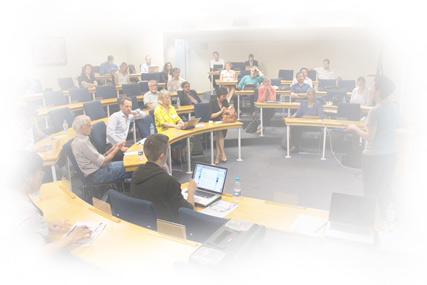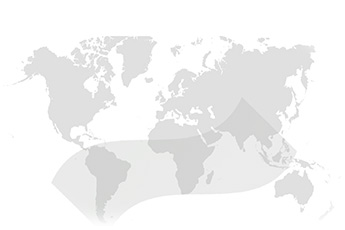OER use in the Global South: A baseline survey of higher education instructors
Read the chapter |
Access the dataset |
The research presented here provides baseline data regarding the use of Open Educational Resources (OER) by higher education instructors in the Global South (South America, Sub-Saharan Africa, and South and Southeast Asia). It does so while attending to how such activity (or inactivity) is differentiated across continental regions and associated countries. The chapter addresses two questions: what proportion of instructors in the Global South have used OER, and which variables may account for different OER usage rates between respondents? This is done by examining which variables – such as gender, age, technological access and digital proficiency – seem to influence OER use rates, thereby allowing the authors to gauge which are the most important for instructors in their respective contexts.
This study is based on a quantitative research survey taken by 295 randomly selected instructors at 28 higher education institutions in nine countries (Brazil, Chile, Colombia; Ghana, Kenya, South Africa; India, Indonesia, Malaysia). The 30-question survey addressed the following themes: personal demographics, infrastructure access, institutional environment, instructor attitudes and open licensing. Survey responses were correlated for analysis with respondents’ answers to the key question of the survey: whether they had ever used OER or not.
Findings indicate that 51% of respondents have used OER, a rate slightly differentiated by region: 49% in South America, 46% in Sub-Saharan Africa and 56% in South and Southeast Asia. A number of variables were associated with varying levels of OER use rates – such as instructors’ country of habitation (and its gross domestic product per capita), level of digital proficiency, educational qualification, institutional position and attitude to education – while many others were not, such as instructors’ gender, age or perception of their institutions’ OER-related policies.
For these respondents in the Global South, OER use is predicated upon instructors enjoying a certain minimum level of access to information and communication technologies infrastructure – especially hardware (computers, mobile devices, etc.) and internet connectivity (broadband, Wi-Fi, etc.) – which, once achieved, can be described as an enabling factor for OER engagement, but not a motivating factor. Beyond that minimum, increased internet speeds, lower internet costs and greater diversity of technical devices do not seem to lead to ever-increasing OER use rates. Similarly, while OER-related policies would likely be a crucial factor in OER creation, they did not seem to be important regarding OER use. Lastly, it was instructors in the comparatively less-developed countries who were using OER at a markedly higher rate than those from the more developed countries (at least intra-regionally). This suggests that instructors from the relatively lesser-developed countries may find greater utility in OER because it serves to overcome some of the pressing educational challenges associated with their nations’ contexts’ lower economic development.
The dataset arising from this study can be accessed at:
https://www.datafirst.uct.ac.za/dataportal/index.php/catalog/609
Citation
de Oliveira Neto, J. D., Pete, J., Daryono & Cartmill, T. (2017). OER use in the Global South: A baseline survey of higher education instructors. In C. Hodgkinson-Williams & P. B. Arinto (Eds.), Adoption and impact of OER in the Global South (pp. 69–118). Retrieved from
Articles
Pete, J., Mulder, F. & Olivera Neto, J. D. (2017). Differentiation in access to, and the use and sharing of (Open) Educational Resources among students and lecturers at Kenyan universities. Open Praxis, 9(2), 173-194. Retrieved from:
Book chapters
Moura, V. F., Correa, J. N. N., de Oliveira Neto, J. D., de Souza, C. A., Viana, A. B. N. Challenges for using Massive Open Online Courses (MOOCs) in Latin America (pp. 92-109). In P. Isaias & L. C. Carvalho, (Eds), User innovation and the entrepreneurship phenomenon in the digital economy (pp. 1-357). Hershey, PA: IGI Global. Retrieved from https://www.igi-global.com/book/user-innovaon-entrepreneurship-phenomenon-digital/178736
Blog
de Oliveira Neto, J. D. & Cartmill, T. (2017, November 16). OER adoption by higher education instructors and students in the Global South. Retrieved from /3305
Conference proceedings
Moura, V. F., Souza, C. A., de Oliveira Neto, J. D., Viana, A. B. N. . MOOCs’ potential for democratizing education: An analysis from the perspective of access to technology (pp. 139-153). In M. Themistocleous & V. Morabito, (Eds.), Lecture Notes In Business Information Processing, 1-8 September 2017. Coimbra, Portugal. Retrieved from https://link.springer.com/book/10.1007%2F978-3-319-65930-5
Presentations
Pete, J. (2017). Differentiation in Access to, and the Use and Sharing of (Open) Educational Resources among Students and Lecturers at Kenyan Universities. Paper presented at Open Education Global Conference, 8-10 March 2017. Cape Town, South Africa. Retrieved from https://www.slideshare.net/oeconsortium/differentiation-in-access-to-and-the-use-and-sharing-of-open-educational-resources-among-students-and-lecturers-at-kenyan-universities
Moura, V. F., Corre, J. N. N., Oliveira Neto, J. D., Souza, C. A., Viana, A. B. N. (2016). Desafios para utilização dos massive open online courses (MOOC) na América Latina. In Fórum da Gestão do Ensino Superior nos Países e Regiões de Lingua Portuguesa, 2016. Campinas, Brazil.
Moura, V. F.; Correa, J. N.; Oliveira Neto, J. D.; Souza, C. A.; Viana, A. B. N. (2017). Barreiras relacionadas a utilização dos MOOCs nos países em desenvolvimento: Uma análise utilizando redes bayesianas. In XX SEMEAD: Seminários em Administração, Novembro de 2017. Retrieved from http://login.semead.com.br/20semead/arquivos/1864.pdf
Correa, J. N. N., Viana, A. B. N., de Oliveria Neto, J. D. (2017). Tipos de usuários de Recursos Educacionais Abertos no ensino superior africano. In EnANPAD 2017. São Paulo, Brazil.
Viana, A. B. N., Correa, J. N. N., de Oliveira Neto, J. D., Moura, V. F. (2017). Características dos potenciais usuários de Recursos Educacionais Abertos: Um estudo com estudantes chilenos do ensino superior. In 14th CONTECSI International Conference on Information Systems and Technology Management, 2017. São Paulo, Brazil.
Moura, V. F., Viana, A. B. N., Correa, J. N. N., Oliveira Neto, J. D. (2017). Potencias dos MOOCs para democratizar a educação: Uma análise a partir da perspectiva de acesso a tecnologia. In EnanPAD 2017. São Paulo, Brazil.
Video
de Oliveira Neto, J. D. (2017). OER use in the Global South: A baseline survey (video). Retrieved from https://www.youtube.com/watch?v=_3zu9WIgE6s&index=3&list=PLqSYUJvxD-UDZPS5NwTJixYZqHTgYu7i2



